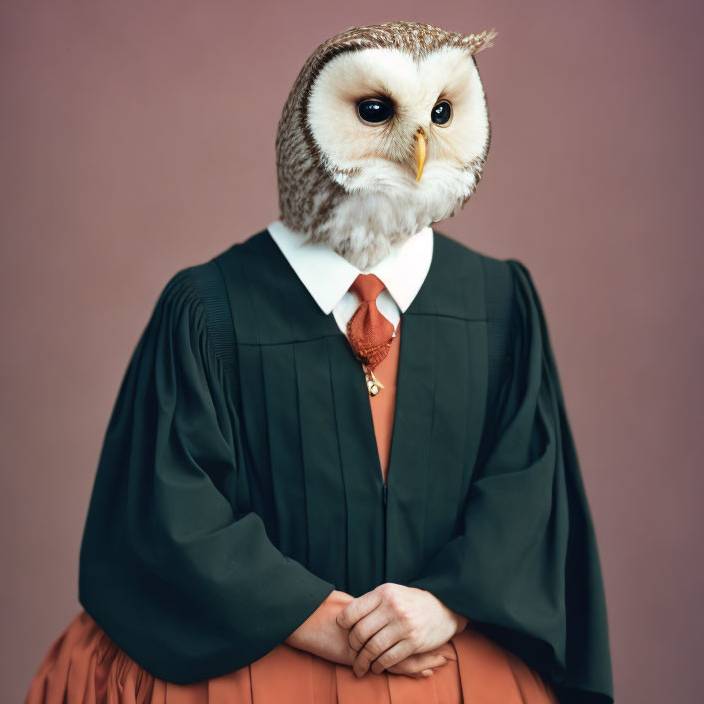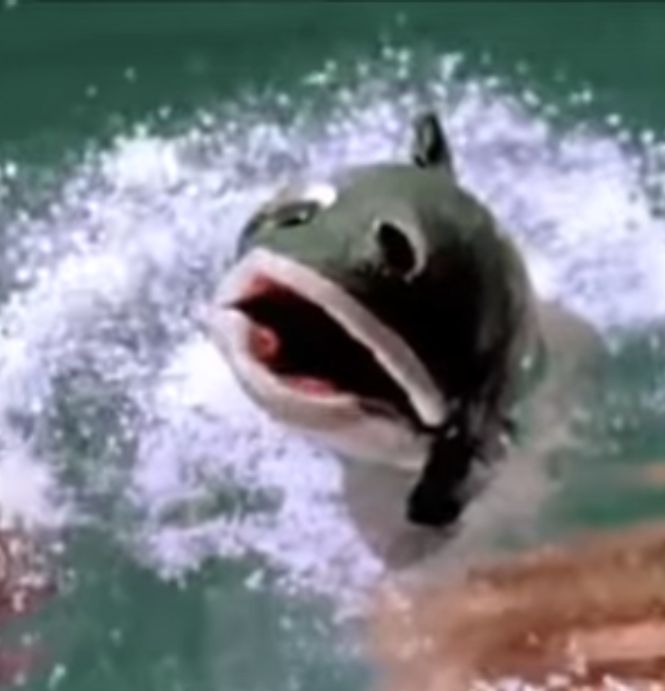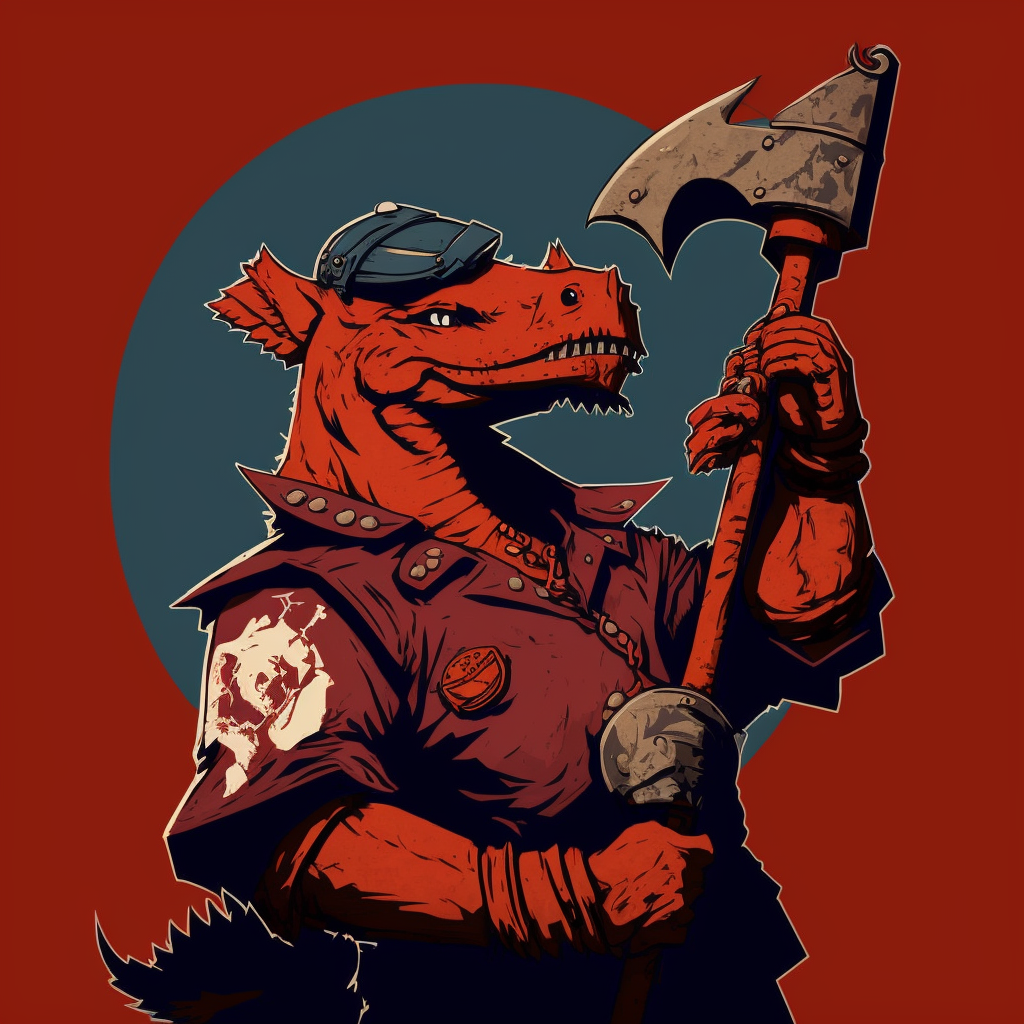Keep in mind I'm paraphrasing this from memory but:
"In my main line of work, we breed fruit flies. We noticed that the some of the more aggressive males would fight over a bit of land, plant, whatever, to court females. We wondered what would happen if we only let the aggressive flies breed, and within 10 generations we had flies that were like Hercules (fruit flies breed very fast which is why they are used to study genetics and evolution). We then reintroduced them back to the more natural population of flies. What ended up happening was; while the aggressive flies were busy fighting, the non-aggressive males were hanging out with the females and making babies. The aggression was quickly bred out and after a couple of generations it went back to initial levels. We often hear the phase 'survival of the fittest' in this field of study, but just a reminder that it doesn't always mean what you think it means."
I thought that was an interesting aside that you might enjoy. ![]()
While you're off fighting the fruit fly war someone is fucking your fruitwife.
"In terms of biology, 'fittest' means those of the species most likely to reproduce", is what somebody told me one time.
How much you can bench is not the deciding factor.
I've always thought, "Survival of the first thing that happens to work", while not quite as neat, better describes evolution without leading to the kind of misunderstandings 'fittest' tends to cause
There's a lot of traits that can be detrimental -- or even deadly -- to individual members, but get passed on anyway because they don't interfere with reproduction enough to undergo selective pressure.
There's an Indonesian boar with tusks that grow all their lives, eventually curving back and impaling their own heads. Squids have ring-shaped brains and their esophagus passes through the ring. They can give themselves brain-damage if they swallow something that's too large. Male fiddler crabs have that one extra large, iconic claw. It doesn't actually work as a claw and usually just slows them down. Unfortunately, female fiddler crabs choose their mates by claw size, so the selective pressure is working against them!
Absolutely. Social darwinism is a complete refusal to understand evolution. Kropotkin had a much better understanding than the social darwinists.
As much of a lib/hack as Tim Morton is, his view of evolution and Darwin as deliberately or accidentally misunderstood to justify domination, and how an ecological reading of Darwin makes much more sense was always very interesting to me.
yep. Perhaps this is a little tangential to the conversation, but I personally think human evolution is behavioral rather than genetic.
Like, sure, there's still genes and stuff, and that undergoes it's own very slow selective pressure. But on top of that is our ability to learn new behaviors and then communicate them to others. Other animals have to wait generations for behaviors to spread through the whole species. For us, it's practically overnight.
This is true for lots of animals, mammals in particular. That’s one of the things that’s made mammals so successful, is the ability to remember learned experiences to help in future encounters, and often to pass those learned behaviors on to their offspring or other members of their species, which most types of animals can’t do to nearly the same extent.
Give a bear enough time and it’ll figure out how to open pretty much any trash can. They’ll also teach other bears how to do the same (not sure if it’s just their kids, I think it’s other bears too). Different orca and dolphin pods can have very different hunting strategies not based on anything genetic, but just that that’s how they were taught.
Hell, everything that goes wrong with humans once you hit 35. After you have a few babies the only selection pressure is being not-miserable enough to provide supplementary care for your grown kids and their kids, which we suspect is a key reason we live so long after peak reproductive years. Your body just needs to work well enough to watch kids until they can take care of themselves to convey that advantage, but there's no selection pressure against lower back pain or your prostate staging a coup the moment you turn 70.
Spines evolved to be horizontal to the ground. Vertical spines suck shit, and knees only work properly when the load is evenly spread between four of them.
Yeah, i've heard it said that we're still in a transitional state and have achieved true bipedalism yet.
The missing ingredient to the achievement of full communism? Proper bipedalism 😔
Wisdom teeth are one of my favorite examples. It does make young-earth creationists defensive, but what doesn't
It also has a LOT to do with the enviroment a species finds themselves in too. Take a shark out of the ocean and it's a lot less scary.
Or... put a billionaire under the sea and see what happens 🎮
 :oceangate:
:oceangate:Or... put a billionaire under the sea and see what happens
Hmm... I think we need more data on that to make a decisive conclusion.
My evolution professor said “Evolution isn’t survival of the fittest, it’s survival of the fit enough”
10,000 years of the stupidest ways to get laid that actually worked
I'm constantly having to remind people that in evolutionary terms, "fittest" doesn't mean the fastest or the strongest or the best provider - it just means "most likely to get laid."
most likely to get laid AND produce offspring that will survive to get laid.
I do not like knowing that I'm at the bottom of the barrel in that kind of fitness

This is a great example!
slaps roof of science you can fit so many bizarre mutant fruit flies in this baby!
Orangutans appatrently have this thing where there are the gigantic "dominant" males who control a territory for access to food and mates. But there are also smaller males who have closer body proportions to females, and they kind of sneak around not drawing attention to themselves. And apparently both strategies have about the same reproductive success.
But there are also smaller males who have closer body proportions to females
Femboy orangutans

Kinda I guess. Lemme see if I can find anything about it.
CW: SA
spoiler
Apparently the "unflanged" male morph mostly reproduces by assaulting females. : (
you can fit so many bizarre mutant fruit flies in this baby!
You really can. I'm finding out about new and terrifying species of flies all the time.
Cuttlefish do this move too. Big boys protect their female and little guys pretend they are girls to get a little action.
CW animal harm
Drosophila is a good example organism.
One of my favorite things about them (besides their help in decoding DNA/RNA itself and its processes) is how they helped in circadian rithm research: https://www.nobelprize.org/drosophila/
The nobel price of 2017 in biology was based on it.
Other common example organisms:
- Caenorhabditis elegans (a worm)
- Drosophila (a fly)
- Zebra fish (for (early) brain development)
- Thale cress (some kind of grass)
- E. Coli (some colon bacteria)
- Baker's yeast
- Slime mold
- Red bread mold
- Penicilin
Question - what makes zebra danios uniquely suited to serve as a model organism? I'm sure access plays a role since they're so easily available thanks to the pet trade, and I know that zebra danios have some features that make their internal mechanisms easier to observe, but neither of those qualities are unique to that species or genus. Did it just happen to be the first suitable fish someone found in the hobby, and then it continued to see use due to the availability of existing research?
I'm sure I could (and probably will) look it up on my own, but I'm curious if you've got any insights into that history.
CW animal harm
Did it just happen to be the first suitable fish someone found in the hobby
I remember that there was a paper looking into historic development of zebra fish as model organism (could've been a poster only). However I didn't find it within half a minute. What I tell you is from long ago, when sequencing was quite expensive and somewhat error prone, which means longer times till you could sequence genes and when CRISPR gene editing wasn't as good as it is now, so I barely remember it.
What I remember is this:
-
the zebra fish shares quite a few relevant strains of DNA with humans, like 2/3. There are plenty of diseases that develop from genome sources that are exhibit in humans which are exhibited in zebra fish also! Often the very same gene sequences are responsible. This is especially the case for some neuronal (and immune system) questions, which means early brain development as example. This means that with gene editing you can turn genes on and off and with some coloured switched you can turn genes and thus protein expression on and off during Zebra fish development. This means that you can in some cases not only say this gene is relevant for that disease (or just neuronal expression), but you can also say at what time that happens, which allows you to tune in of the type of "defect", be it DNA sequence or protein, or protein folding. This also enables you to find out which kinds of proteins are useful for what development steps in Zebra fish and if the DNA/Protein expression is shared in humans, too!
-
zebra fish are nearly transparent, this means you can look at stuff well, also toggling stuff with lasers is more easy
-
zebra fish are reproducing very fast, easy and they are cheap to feed, also they don't need a lot of space, but if your lab got it you can give them quite a bit of space.
-
their genetic sequence was known and sequenced quite early on, in part cause they were somewhat of a model organism even before their DNA was completely known, so it has been a practice
So I think you have a good point in terms of that it is just a common model organism, which means that research on it is established, easy to reproduce and people got a feeling for what to expect (and especially what is exaggerated). If there would be 100k model organisms for one use case they would lose their function somewhat.
However don't take anything I wrote serious, this is like pretty old, so the pros and cons might have shifted significantly.
Finally: Cuba created a Zebra Fish centre last year and the EU got one, too
Next time I'm infodumping to my wife about fish she might actually hear something I haven't repeated a thousand times. Thank you very much for taking the time to share the history!
-
yes! when i was in grad school a bunch of my friends ended up being primatologists (specifically working with orangs) so I learned a lot. the flanged vs. unflanged male stuff is interesting.
There's a long-term evolution experiment studying mice that reminds me of this. The experiment breeds mice that like to run, the mice that run more get bred together. After 90 generations the "fast runner" group has remarkably enhanced aerobic capacity. They can outrun any mice from the other groups, but also they only like running. They don't like eating, don't like mating, and get agitated when they're tired. The only thing that calms them down is ritalin (ADHD medication) which makes them behave more like normal mice.
I'm guessing in the wild this group would quickly get bred out of a population, like the fruitflies
Me selectively breeding humans that love to party to create the ultimate party rocker.
Why haven’t they introduced this population to another neutral population? A 90 generation difference would make for very interesting studies.
There are four control groups of regular neutral mice that are used for breeding and comparison
The aggressive flies were busy fighting each other, while the less aggressive ones instead learned how to play musical instruments which is much more attractive
A lot of it is new and depends on culture. It used to be the height of manliness to wear a silk cravat and a powdered wig in western cultured.
I point to the shift happening around the industrial revolution. I think that screwed with a lot of peoples' perceptions of themselves, since it was effectively a process of domesticating people.
Now people are entirely domesticated and detached from their labor, so we've had to invent new personas for people to adopt. The brave strong manly individualist aggressive guy with guns is someone trying to emulate what he thought American homesteaders were like in the early 19th century, pre-industrial revolution. That's how I see it at least. Also yes it's consumerist inventions so companies can sell two versions of the same product: a pink one covered in glitter and a "tactical" one in camo.
I never understood this aggressive masculinity thing. Is it a modern, consumerist invention?
IMO; it's a consequence of the development of class society out of primitive agrarianism, and specifically, pre-gunpowder methods of conflict. When the most reliable way to stay alive in a given conflict is to be the last to back down from it (most casualties in warfare prior to gunpowder were almost always inflicted during a rout), then that's inherently going to select for people who are unusually aggressive.
Coming from an East Asian culture, many of the Casanovas in East Asian literature (Dream of the Red Chamber, The Tale of Genji etc.) are feminine, soft-spoken men that get laid all the time. They’re not depicted as weak or coward at all, but actually quite bold and know how to take charge when needed.
That falls within the context & confines of aggressive masculinity, or at the very least "Masculine Hyper-aggression". Yeah, a lot of classical heroes, be they Eastern or Western had what we today would consider "feminine presentation", but those weren't understood as being feminine back then, and nearly all of them were some combination of psychotically violent & relentlessly self-interested.
god I wish I lived in a reasonable culture instead of this vicious hellscape.
I studied evolutionary biology in college and this is indeed very neat.
My evolution professor said “Evolution isn’t survival of the fittest, it’s survival of the fit enough” and it’s stuck with me. Loved that class.
Not every beneficial gene improves fitness and in many cases it can actually make the organism less fit and vice versa.
Bacteria have plasmids specifically because some mutations that could help them survive harsh conditions also fuck with their ability to reproduce (for example antibiotic resistant bacteria are quickly outcompeted by susceptible colonies).
Then you have cases of animals like the Irish elk where an evolutionary pressure to have larger antlers to attract mates snowballed to the point that the antlers are arguably one of the reasons they're extinct.
I know basically the same thing happens with salmon as well (and possibly other fish?), smaller males will sneak in and fertilize the roe while the larger ones are fighting
brb, going to write a self-help book for dudes called 13 rules for life advocating that men strengthen themselves by acting like salmon. While the alphas are fighting, the sigma salmon sneaks in and fertilizes the roe!
I AM YOUR EVOLUTIONARY SUPERIOR! I HAVE SIRED 37 CHILDREN ACROSS 12 STATES, NO ONE CAN MATCH MY GENETICALLY SUPERIOR SEED!
Republicans wake up in a cold sweat from this line of logic






















